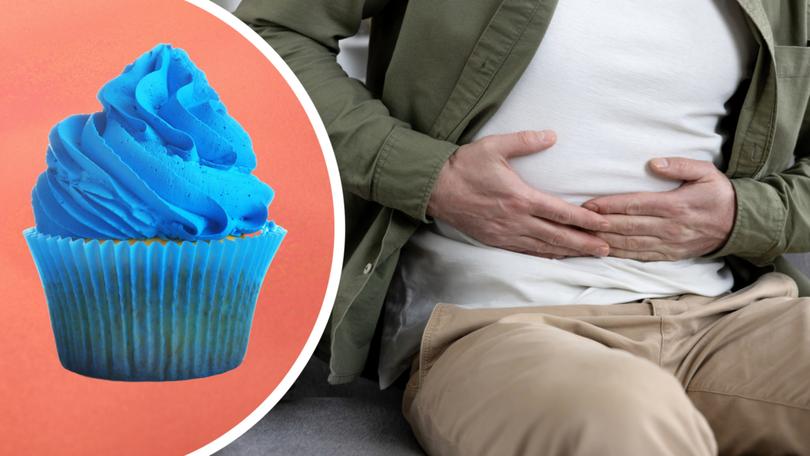Dr Emily Leeming: How to check if your gut is working properly & tips to relieve constipation

Did you know that the speed at which your body digests food not only affects how full you feel, but can also provide clues to your overall health?
This might surprise you, but in fact research (including my own) shows that gut transit time – the time it takes from eating a food to it being digested and excreted as waste – may be linked to health issues.
Think of your gut transit time as like a train journey: if the train crawls along or sits at a station too long, everything backs up, causing delays and discomfort.
Sign up to The Nightly's newsletters.
Get the first look at the digital newspaper, curated daily stories and breaking headlines delivered to your inbox.
By continuing you agree to our Terms and Privacy Policy.But if the train speeds through the stations too fast, it misses important stops where passengers need to get off.
For example, a slow gut transit time is associated with a greater risk of colon cancer, according to a study in the British Journal of Cancer in 2004 – possibly because it prolongs the exposure of the gut wall to potential carcinogens in stools.
A slow transit time could also affect the gut microbiome – the community of bacteria and other microbes that live there and play a key role in our health.
In my own research, published in the journal Gut in 2021, my colleagues and I found that a slow transit time of more than 59 hours was associated with higher levels of ‘bad’ gut bacteria that had previously been linked with markers of poor heart health and inflammation.
Similarly, a recent study in the journal Cell showed that people with a slow transit time tend to have a higher microbial load (the total bacteria in the gut).
While this isn’t inherently harmful, it may have negative consequences under certain conditions.
Normally, microbes in the gut are excreted in the stool. But when transit time is slow, they aren’t eliminated and continue to multiply.
This creates more microbes to feed, while their source of food, primarily fibre, becomes more scarce as it takes longer to reach them.
The microbes can then end up producing harmful byproducts linked to inflammation, which is often a precursor to illness and disease.
But a fast gut transit time can also cause problems.
Food moving too quickly through the gut might lead to poorer nutrient absorption, resulting in energy crashes and leaving you hungry soon after eating.
It can also reduce the overall number of microbes living in your gut (some of which play a vital part in protecting you against infections, or are linked to mood) – that’s because rapid transit limits the time for bacteria to interact with the food you eat, and make the molecules that support your wellbeing.
While occasional bouts of fast transit, such as when you’re nervous (as your body’s fight-ordiscomfort flight response kicks in, speeding up digestion), won’t cause harm, frequent occurrences may leave you feeling fatigued, moody, or unwell.
The sweet spot for digestion is thought to be around 14 to 58 hours.
This is long enough for nutrients to be absorbed but not so long that your gut microbes start to run out of their preferred food source.
This balance supports a ‘healthy’ gut microbiome, enabling their production of healthy molecules such as shortchain fatty acids that support your immune system as well as the health of your gut.
So, how do you measure your gut transit time?
An obvious sign of slow gut transit time is constipation – straining, hard stools or going less than three times a week for at least three months.
As many as one in three people in the UK who don’t think they’re constipated actually meet the medical definition of constipation, according to a 2019 study in The American Journal of Gastroenterology.
And you can have a slow gut transit time without meeting the full definition of constipation – you might have regular bowel movements but they take longer, leading to discomfort or bloating.
Scientific studies tend to use expensive high-tech tools; for instance, ingestible capsules with sensors that track how long food takes to travel through the gut then transmit precise data to an external device.
But there are a few ways you can measure your gut transit time at home for free (though, note, these aren’t diagnostic tests).
In our research, we used bright blue muffins – dyed with food colouring – measuring the time between the participants eating them and when they noted their stools changed colour.
You can try this at home by making your own blue muffins, or instead you could eat sweetcorn (easy to spot in stools) or beetroot (which can turn your poo red).
The good news is that your diet can help you achieve an optimal speed of digestion to help keep you feeling fuller and energised for longer, limiting bloating and digestive or discomfort.
Here are my tips for the top foods that can help:
SMALL BUT MIGHTY KIWI FRUIT
Kiwi fruit increases water and volume in the gut due to its water-retaining fibre helping to soften stools and improve bowel movements.
A large study published in The American Journal of Gastroenterology in 2023 found that eating two kiwi fruits a day for one month helped improve constipation and digestive discomfort, adding about 1.5 more bowel movements per week.
A 2010 study, published in the Asia Pacific Journal of Clinical Nutrition, found that having two kiwis a day reduced gut transit time in those with constipation by an average of eight hours.
THE NATURAL FIBRE SUPPLEMENT
Psyllium husk is a fibre supplement you can easily find at most pharmacies, widely available in powder or capsule form (for dosage follow the manufacturer’s guidelines).
Made from the seeds of the shrub-like herb plantago ovata, it’s packed with a type of fibre that absorbs water in the gut, helping to regulate bowel movements.
Whether you’re struggling with constipation or loose stools, psyllium can help by either softening stools for easier passage or bulking them up to slow things down
GO DARK WITH YOUR BREAD
RYE is richer in dietary fibre than other grains, and rye bread has been shown to speed up slow gut transit time by 23 per cent compared with white bread, adding an extra 1.4 more bowel movements per week – and lowering levels of compounds that could be linked to colon cancer, according to a 2010 study in the Journal of Nutrition.
Just 100g of pumpernickel rye bread contains 7g of fibre, contributing a significant amount towards the recommended 30g.
DRIED FRUIT WITH ADDED PUNCH

You’re probably familiar with the idea of dried fruit helping to ‘keep you regular’ as a concentrated source of fibre.
And some dried fruits have been specifically shown to help.
A 2016 study in the Asia Pacific Journal of Clinical Nutrition found that eating 300g of fig paste (if you can’t get hold of this, try a similar amount of dried or fresh figs) daily for two months had a small but positive effect on constipation (though obviously that’s a lot of figs, so you might want to try other strategies first).
Raisins could also be helpful: one small study in 2013, published in the British Journal of Nutrition, found that 120g raisins a day not only improved participants’ gut transit time by 14 hours, but they also had higher levels of short-chain fatty acids, beneficial molecules produced by your gut microbiome.
... AND DON’T FORGET TO STAY HYDRATED
Water (that includes tea and coffee) softens the stool, making it easier for your gut muscles to move food along at a healthy rate.
While eight glasses of water a day can be a helpful guideline, your hydration needs can vary depending on exercise and the weather.
A simple way to check is by looking at the colour of your urine – it should be a pale lemonade colour.
